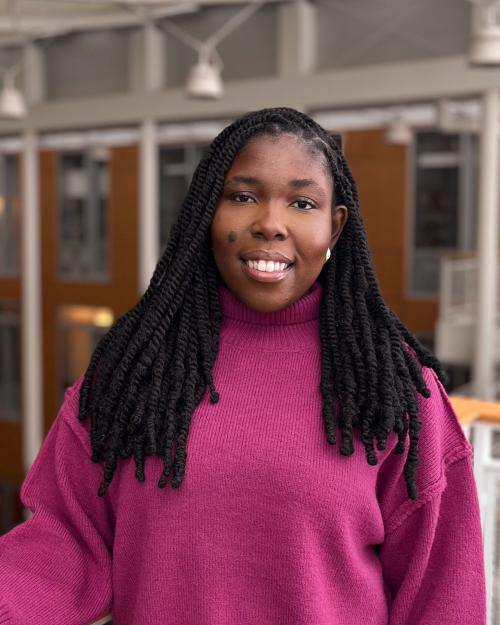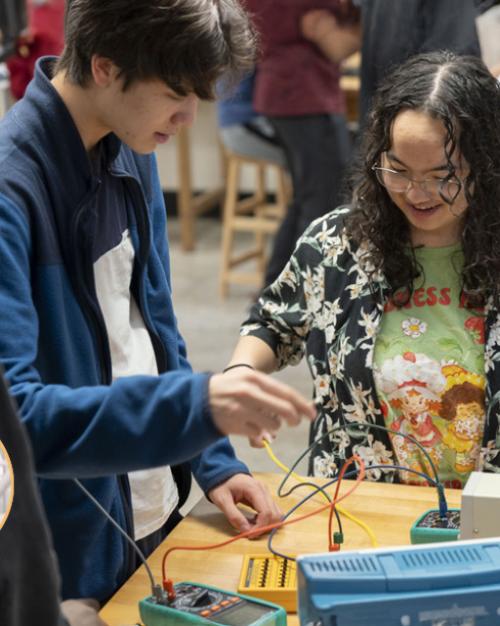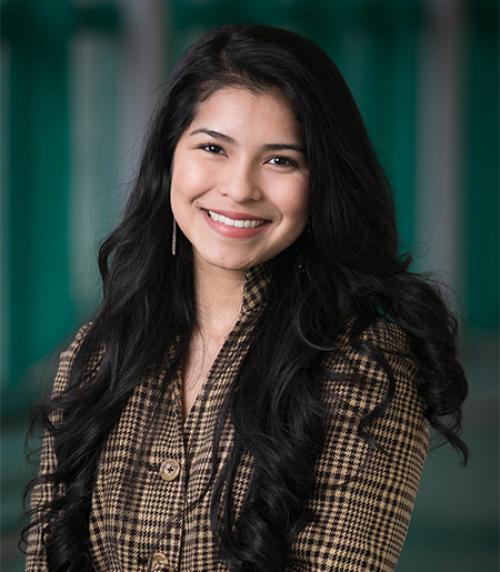Elizabeth De Los Reyes
Government
San Juan, TX
Why did you choose Cornell?
I transferred to Cornell as a junior and spent the next two years majoring in government and minoring in Latin American studies. Out of all the universities I applied to, Cornell offered the most institutional support. I appreciated Cornell’s motto “any person, any study” and its commitment to lessen the disparities that come with being a first-gen, low-income student. I knew that at Cornell I would have countless resources at my disposal.
What have you accomplished as a Cornell student that you are most proud of, either inside the classroom or otherwise?
My most formative experience took place in South Texas, where I spent a winter researching migration and metering practices at ports of entry. I grew up in the Rio Grande Valley, one of the communities that has been at the center of political discourse on border security. It is one of the many border communities that has lived with the consequences of divisive immigration policies, especially the buildup of border enforcement, the escalation of policing, and the possibility of a border wall. Throughout the winter, I interviewed asylum-seekers who slept in a makeshift campsite on the Mexican side of the Brownsville-Matamoros International Bridge. They had been told to wait for their turn to claim asylum and that Mexican border agents would eventually call their names from an obscure list. I listened to heartbreaking stories of loss, resilience, and faith. Many had experienced extreme violence throughout their journey and had even been kidnapped while waiting in Mexico. On the last day of my fieldwork, after Trump had visited the border, the Mexican government shut down the campsite and many families who had been waiting for months slept on the streets. I left this experience with an overwhelming sense of grief and frustration over the loss of humanity in American politics. I think about these stories often and carry the urgency to be an active force for change.
How have you changed since you first arrived at Cornell? What have you discovered about yourself?
When I first started undergrad, I was very naive about what it meant to succeed in a competitive environment. Through hard work, one could accomplish anything. But, it also requires a significant amount of self-confidence and self-advocacy. I typically hear from my friends who are also first-gen or have limited resources talk about imposter syndrome and the skepticism that has come with their success. The most empowering lesson I’ve learned is that at the end of the day only I can define who I am and what I am capable of achieving.




